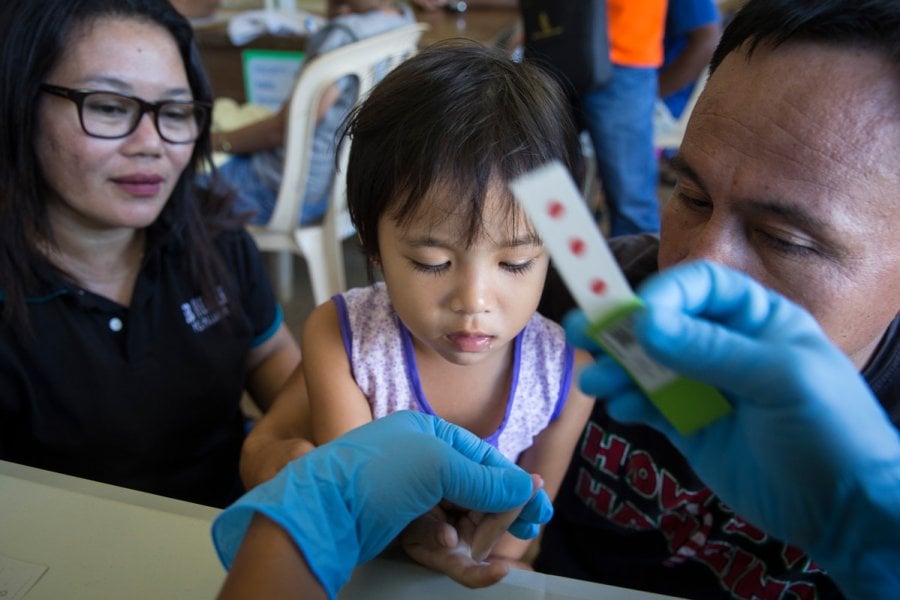
RITM staff takes a blood sample for a malaria test in The Philippines - Joshua P for LSHTM
The Philippines, which is aiming to eliminate malaria by 2030 following a sub-national elimination approach, recorded over a 70% decrease in malaria cases in the past decade, with only 1 of 81 provinces currently reporting local cases in 2022, and 16 in elimination phase. By utilising serology – the testing and analysis of blood samples – it is possible to produce estimates of malaria transmission intensities to perform as a viable additional metric of both historical and recent exposure to the disease.
This study published in The Lancet Regional Health Western Pacific evaluates various statistical and machine learning methods for scrutinising antibody response data for exposure to the most prevalent malaria parasites, Plasmodium falciparum and P. vivax.
Through a collaborative effort between LSHTM, Research Institute for Tropical Medicine of the Department of Health in the Philippines (RITM) and the provincial governments of three provinces (Bataan, Mindoro Occidental and Palawan), exposure to malaria infection was assessed via multiple antigen-specific antibody responses and different statistical methods to estimate both recent malaria infection and historical transmission in areas of different endemicity in the Philippines. Most significantly, machine learning model predictions of malaria exposure were consistent with reported levels of transmission in the study sites, highlighting the potential for advanced analysis of serological data to provide accurate complementary data on incidence levels. This could be used by national malaria programmes at small spatial scales at sub-national level – a vital tool for surveillance.
The authors, including from the London School of Hygiene & Tropical Medicine (LSHTM), believe the research provides an example of how to collectively monitor risk in countries such as The Philippines, where residual transmission continues to hamper elimination efforts.
Principal Investigator, Professor Chris Drakeley, praised the result "as part of our longstanding collaboration with RITM aiming to improve surveillance for malaria and neglected tropical diseases to aid the Philippines in disease elimination. The work results from a joint UK/Philippines-funded project and provides strong evidence that integrating different diagnostic approaches can improve identification of target populations for malaria control, ultimately increasing the efficacy of interventions."
First author, Malou Macalinao, explained "The immune response to malaria is complex but by using a combination of multiple malaria antigens in a serological assay with machine learning statistics, we have reduced this complexity to a level where the prediction outputs have the potential for use by malaria control programmes."
Publication:
MLM Macalinao et al. Analytical approaches for antimalarial antibody responses to confirm historical and recent malaria transmission: an example from the Philippines
If you enjoyed this article and would like to build a career in global health, we offer a range of MSc programmes covering health and data, infectious and tropical diseases, population health, and public health and policy.
Available on campus or online, including flexible study that works around your work and home life, be part of a global community at the UK's no.1 public health university.
